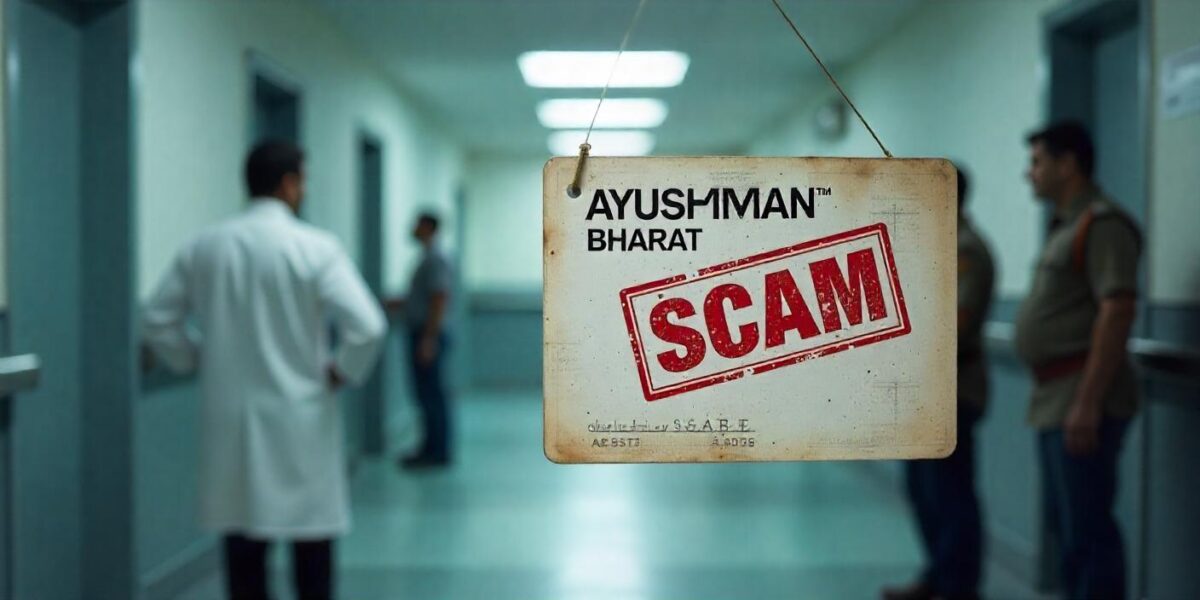Chandigarh’s PGIMER hospital was supposed to help people who couldn’t afford medical care. But behind the scenes, something shady was happening.
A scam so big that even after several complaints, no action was taken. Fraudsters were stealing money meant for poor patients and getting away with it.
The scam came to light after Ashwani Munjal, chairman of the Joint Action Committee, PGI, filed an RTI request, revealing that several complaints had gone unnoticed since 2024.
A Warning That No One Heard
Ashwani Munjal adjusted his glasses and walked into PGIMER, holding a thick file. He had been fighting to expose this scam for months, filing complaints, asking questions, and demanding answers.
But today, something felt different.
“Sir, you can’t enter today,” a security guard stopped him at the gate.
Munjal frowned. “Why not? I have a right to check these records.”
“Orders from above,” the guard said, avoiding eye contact.
Munjal knew what that meant. Someone in power was trying to keep him out.
But he wasn’t going to give up. Not after all that he had discovered.
How the Scam Worked
The government introduced the Ayushman Bharat scheme to provide free medical treatment for poor people.
But fraudsters found a way to cheat the system. They used stolen hospital books and fake doctor stamps to create fake Ayushman Bharat cards.
These fake cards allowed ineligible people to get free treatments and medicines, while those who truly needed help were left out.
For years, the scam went unnoticed or was ignored. Complaints about stolen hospital books had been piling up.
In 2024 alone, four such reports were filed, followed by three more in early 2025.
Yet, the hospital management did nothing. Then, an unusual incident exposed everything.
A ₹60,000 Prescription That Raised Eyebrows
On February 18, 2025, at PGIMER’s AMRIT pharmacy, where government-subsidized medicines were given, something suspicious happened. A young man walked in with a prescription worth ₹60,000.
“Your Ayushman card, please,” the pharmacist asked.
The man hesitated, then handed over a laminated card.
Something didn’t look right. The stamp seemed off, and the doctor’s signature was unfamiliar. The pharmacist looked at the security desk and nodded.
Minutes later, the man was in custody. What followed was a shocking revelation: PGIMER had been losing money to fraudsters for years.
What Went Wrong?
As investigators dug deeper, the truth became clear. Hospital books that recorded medicine requests had been going missing. Fraudsters used fake doctor stamps to approve these requests.
Most alarming of all, some hospital staff were suspected of being involved.
“There’s no way an outsider could do this alone,” an investigator said. “Someone from inside had to be helping them.”
For whistleblowers like Munjal, this was no surprise.
He had been pointing out problems for over a year, only to be ignored. And now, with an FIR finally registered, people wanted to know, how many patients had suffered while these fraudsters made money?
Too Little, Too Late?
PGIMER, now under pressure, announced a big change: they would switch from manual record-keeping to an online system to prevent such fraud.
“Why now?” Munjal scoffed. “Why not when we first reported the missing books?”
It was a fair question. Many were now asking the same thing. How many more such scams were waiting to be exposed?
What This Scam Taught Us
The Ayushman Bharat scam at PGIMER isn’t just about stolen money—it’s about a system that fails to protect the poor. A system where fraudsters find loopholes faster than authorities can fix them. A system where whistleblowers are ignored until it’s too late.
For now, investigations continue. Arrests have been made.
But the real question remains: can India’s healthcare system truly protect its most vulnerable citizens? Or will fraudsters always be one step ahead?







